Publications
Articles, publications, books, tools and multimedia features from the U.S. Institute of Peace provide the latest news, analysis, research findings, practitioner guides and reports, all related to the conflict zones and issues that are at the center of the Institute’s work to prevent and reduce violent conflict.
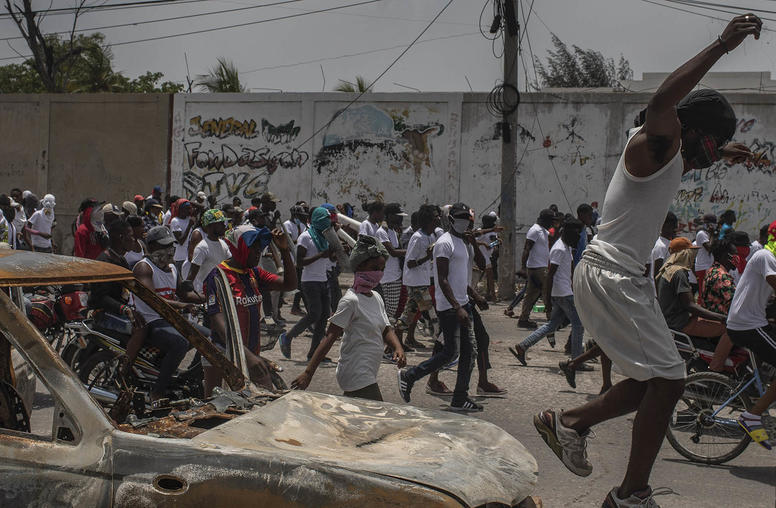
Comment sortir de l'impasse en Haïti
Après la série de crises liées à Haïti l'année dernière - un assassinat présidentiel, un tremblement de terre, une urgence migratoire a la frontière entre Mexique et des États-Unis et une consolidation dramatique de la violence des gangs - les décideurs internationaux ont été confrontés à la possibilité qu'Haïti se trouve dans les premières étapes d'une crise humanitaire à grande échelle. La nouvelle détérioration de la politique haïtienne au cours des premiers mois de 2022 n'a fait que confirmer que le pays a franchi cette sombre étape.

How to Break the Stalemate in Haiti
Following last year’s streak of Haiti-related crises — a presidential assassination, earthquake, a migrant emergency at the Mexico-U.S. border and a dramatic consolidation of gang violence — international policymakers were left grappling with the possibility that Haiti was in the initial stages of a full-scale humanitarian crisis. The further deterioration of the Haitian polity in the early months of 2022 has only confirmed that the country has passed that grim milestone.
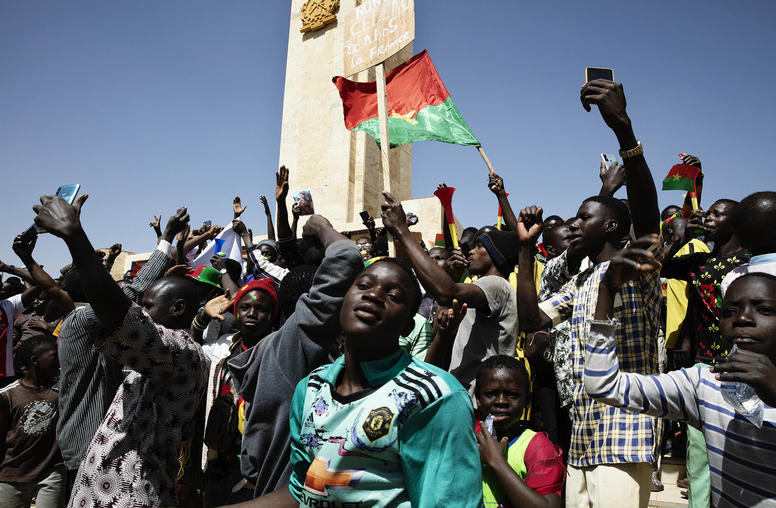
For Peace in Sahel, African and U.S. Experts Urge Focused Partnership
The past month has sharpened a decade-old question for U.S. and international policymakers: How best, in 2024, to help stabilize what is now the world’s largest single zone of military rule and violent conflicts — Africa’s Sahel region? After three military-ruled Sahel states withdrew from the West African regional community in January, those juntas last week proclaimed an alliance aimed at resisting international pressures, including those for their return to elected civilian rule. Former U.S. and African officials yesterday urged what they called vital changes in U.S. and allied policies to prevent a dangerous spread of the Sahel’s crises.
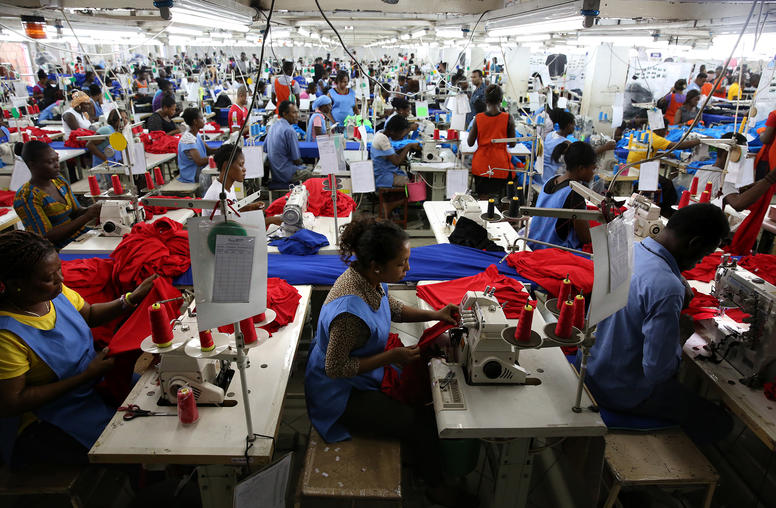
Countering Coups: In Africa, Use Investment to Build Rule of Law
Policymakers are urgently seeking ways to reverse the erosion of democracy in fragile states exemplified by the past year’s surge in military coups in and around Africa’s Sahel region. To halt this decline, it’s vital to listen to African voices urging that international partners make the most of a powerful pro-democracy tool: increased foreign investment built upon the rule of law.
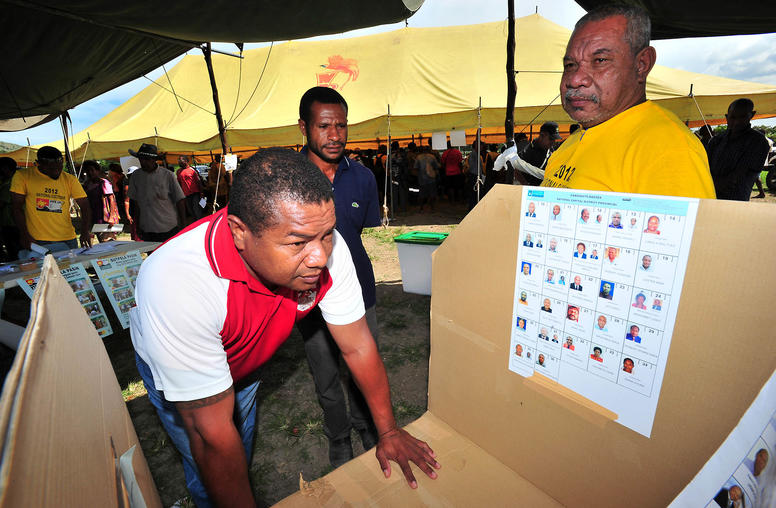
Papua New Guinea: Election Violence Shows Lack of Trust in the State
One of the most incisive works of the prodigious but too little heralded Papua New Guinean writer Steven Winduo is a short story collection titled the “Unpainted Mask.” The book explores how the denizens of the island nation negotiate the everyday travails of modern life, using as its central motif how people wear different masks to view themselves and others. According to Winduo, it is vitally important to discern the public mask, as well as to appreciate what is underneath. Seeing one without the other is a recipe for distorted vision. Winduo’s words don’t just apply to people, but also to the state of Papua New Guinea (PNG) and its institutions.
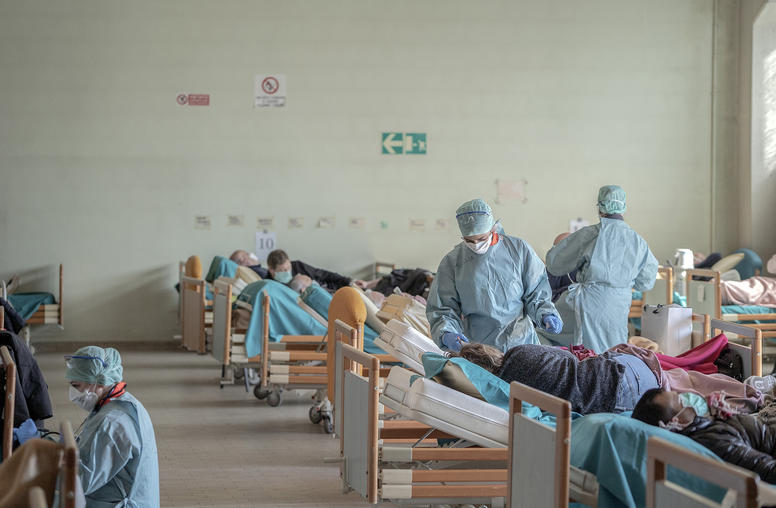
Amid Global Coronavirus Outbreak, What About Refugees?
With COVID-19 officially labelled a global pandemic, the focus for many countries has turned toward protecting their most vulnerable populations. But what about camps for refugees and internally displaced persons (IDPs)? Many camps lack the resources to maintain their already poor infrastructure, and the threat of a COVID-19 outbreak puts millions of displaced persons in a dangerous position. USIP’s Fouad Pervez looks at the unique risks that COVID-19 poses to refugees and IDPs, the impact an outbreak among these groups would have on the global pandemic, and what the international community can do to protect them.
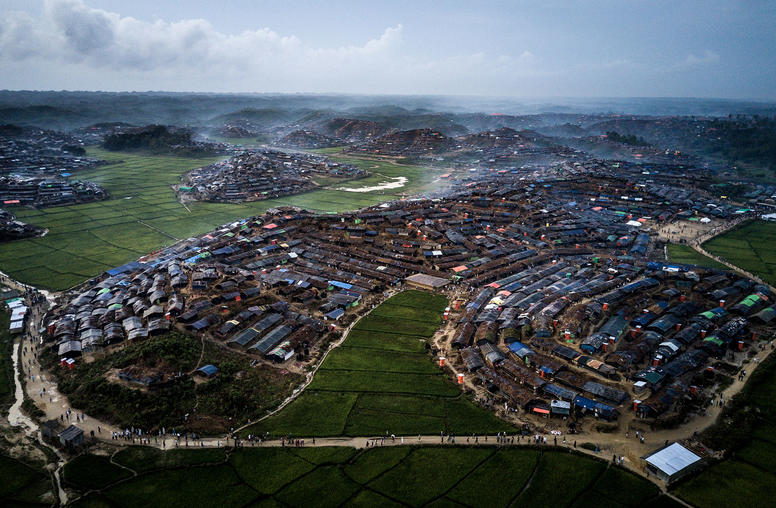
The Coronavirus Requires Global Cooperation—Now
As the world’s privileged cope with the COVID pandemic through telework and sheltering at home, millions of people face grim struggles for survival, packed into informal settlements or camps for people already displaced in war-torn or fragile states. Governments have missed opportunities for a stronger international response, partly because of great-power rivalries. The economically powerful Group of 20 nations and international financial institutions have made a start at buoying the world’s economy—but other multilateral forums are mired in stasis. The U.N. Security Council should act to get ahead of the pandemic in fragile states and seize the moment to advance peace in some of the world’s most intractable conflicts.
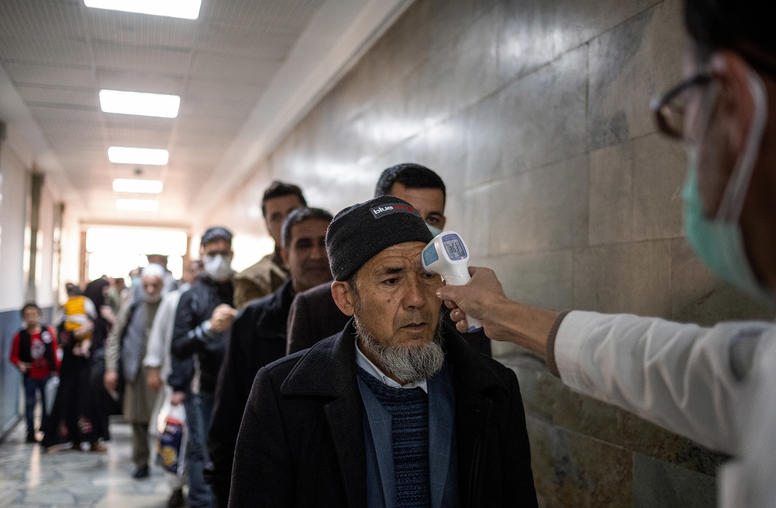
Don’t Leave Fragile States Behind in the Fight Against Coronavirus
Since the World Health Organization declared COVID-19 a global pandemic, the virus has demonstrated it can infect anyone, anywhere. The disease has affected 179 countries and regions and has spread to all 50 U.S. states. Yet if the pandemic has spread far and wide, its impacts have not been the same everywhere. The disease may be taking radically different trajectories, even among wealthy countries. While it may be too early to tell how the disease’s spread will play out in specific countries, one thing is certain: the world’s fragile states—where the social contract between citizens and the state is severed or weak—are likely to be the hardest hit, and that could pose a significant risk to the global pandemic response.
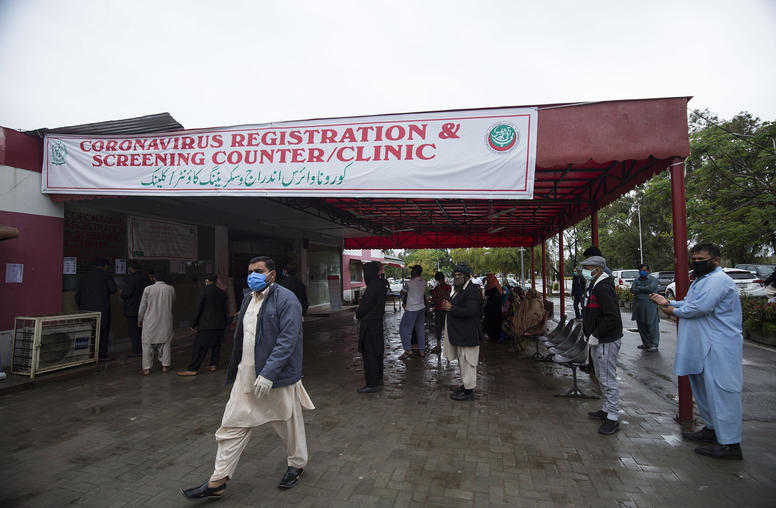
Pakistan’s Looming Coronavirus Crisis
In the weeks since Pakistan’s first confirmed cases of coronavirus, the country’s response has laid bare troubling weaknesses in governance, public health, and economic stability—and raised serious questions about Pakistan’s capacity to weather a large-scale outbreak absent significant international assistance. USIP’s Cyril Almeida and Ambassador Richard Olson look at how friction between the military and federal government poses a risk to Pakistan’s democracy, the possible avenues for medical and economic relief, and what COVID-19 means for the situation in Kashmir and Pakistan’s role in the Afghan peace process.
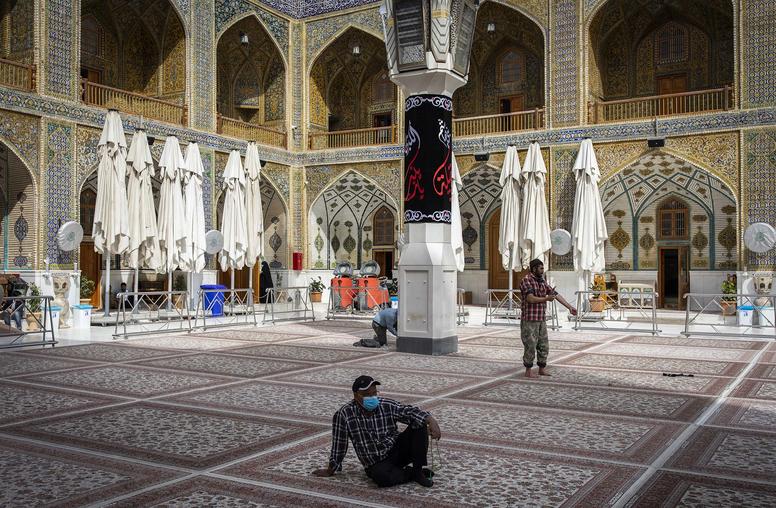
Six Challenges Facing a Fragile Middle East Amid Coronavirus
The COVID-19 pandemic has proven a challenge even for wealthy countries with the most robust health care systems. For the Middle East—a region with no shortage of dangerous pre-existing conditions—it could be far worse. The virus now appears to be spreading to a part of the world where, over the past decade, conflict and displacement have become widespread while effective governance and social cohesion have eroded.